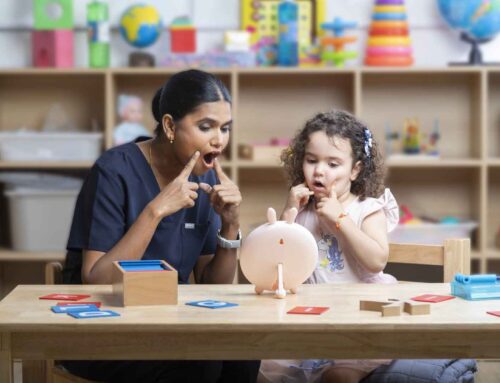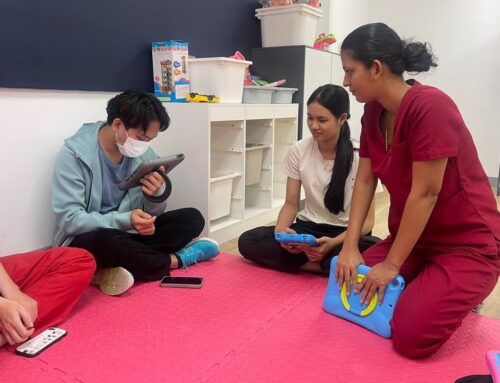When a child can hear but struggles to make sense of what they hear, Auditory Processing Disorder (APD) may be the reason. In Phnom Penh classrooms, APD can look like inattention or “not following directions,” yet the core issue is the brain’s difficulty processing sound. This guide explains how Auditory Processing Disorder (APD) shows up at school, practical accommodations teachers can use tomorrow, and what assessment realistically looks like in Cambodia—plus how OrbRom Center supports families.
Classroom signs of Auditory Processing Disorder (APD)
Students with Auditory Processing Disorder (APD) often:
-
Miss multi-step instructions, especially in noisy rooms or fast speech
-
Ask for frequent repeats or say “huh?”/“what?” even with normal hearing
-
Mix up similar-sounding words or struggle with phonics and note-taking
-
Fatigue quickly during listening tasks and appear off-task
These overlaps can be mistaken for attention difficulties. Before assuming ADHD, consider listening demands and noise. For broader context on attention, see our primer on communication and language and how learning profiles affect classroom success.
Low-lift accommodations schools can apply now
Small environmental and instructional tweaks can dramatically improve access:
-
Reduce noise & visual clutter: seat the child away from fans/doorways; use carpets/soft boards; aim for a distraction-free classroom.
-
Prefer visual + verbal: write key words, steps, and vocabulary; pre-teach new terms.
-
Chunk and check: give one step at a time; ask the child to restate directions.
-
Assistive tools: classroom amplification, captions, or teacher voice to one ear. Consider trialing noise-cancelling headphones during independent work.
-
Targeted therapy strategies: listening-in-noise practice and language scaffolds—learn more about structured listening supports like auditory-verbal therapy.
Because APD often co-exists with sensory sensitivities, parents may also find this explainer on sensory processing in children helpful.
Assessment in Cambodia: what’s realistic—and how we do it
A gold-standard APD diagnosis typically involves specialized audiology testing in a calibrated sound booth. In Phnom Penh, such equipment and pediatric audiologists are limited. At OrbRom Center, we offer a practical pathway:
-
Screen & profile: case history, language/listening measures, and classroom observations aligned to school demands.
-
Functional listening checks: speech-in-noise screening, following-directions probes, and curriculum-linked tasks.
-
Trial accommodations: we test real-world supports (e.g., seating, visual scaffolds, headphones) and monitor impact over 2–4 weeks.
-
Referral network: when full audiological testing is needed, we coordinate regional referrals and fold results back into your school plan.
Throughout, we collaborate with teachers so supports live beyond the clinic. For classroom fit-outs and routines that reduce overload, see our guide to building a distraction-free classroom and practical sensory strategies within school timetables.
Getting help at OrbRom Center, Phnom Penh
-
Assessments: Need clarity on whether it’s Auditory Processing Disorder (APD), language processing, or attention load? Book a comprehensive child evaluation at OrbRom: Assessments.
-
Therapy & school support: Our speech-language team provides listening-in-noise training, language scaffolds, and teacher coaching: Speech therapy.
We’ll tailor an APD-aware plan that your child can use at school the very next day.
We are the only Preschool specialized on children with special needs in PhnomPenh.
- Internationally qualified teachers
- Cambodia’s largest sensory room
- Outdoor swimming pool
- Covered outdoor playground
📞 Phone: 077.455.993
Telegram Link: https://t.me/OrbRom





